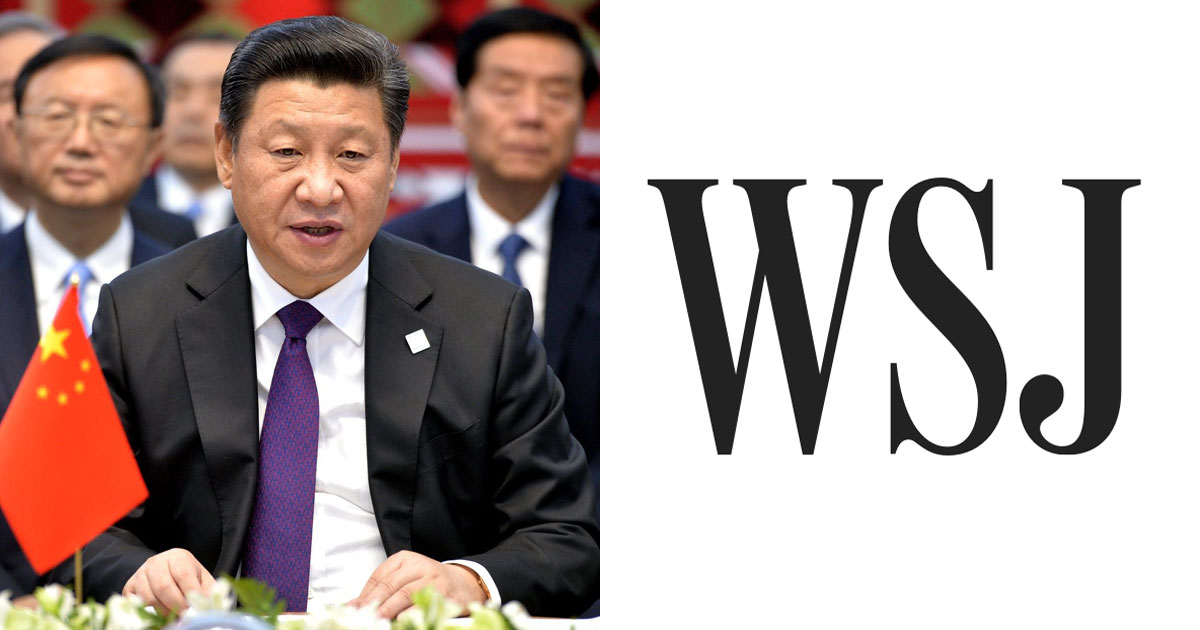A Singaporean Wall Street Journal reporter has been expelled from China.
This came one month after WSJ published a report about allegations that a cousin of Chinese leader Xi Jinping was involved in high-stakes gambling and potential money laundering in Australia, according to the Washington Post.
The press credentials for Wong Chun Han, a Singapore national, would not be renewed, Chinese authorities told the WSJ on Friday.
Wong has covered Chinese politics from the WSJ Beijing bureau since 2014.
Those credentials expired Friday.
A denying of press credentials is seen as a punishment for international news organisations for reports that the ruling Communist Party perceives as unfavorable coverage.
Noting the heavy-handed move by China, WP, reporting on the news, characterised WSJ as "a publication generally known for incisive but evenhanded coverage of the country".
This is the first time in a long time a WSJ reporter has received this treatment.
What did the WSJ story on Xi entail?
Wong was one of two authors of a July 30 report that delved into the lavish spending in resorts by Ming Chai, one of Xi’s cousins and an Australian citizen.
It also reported on Chai’s links to what Australian officials deemed to be a money-laundering front in Melbourne.
However, the WSJ story said there were no indications that Xi knew about his cousin’s activities in Australia.
The Chinese leader was not implicated in any wrongdoing.
But Beijing considers the private wealth of top leaders’ families to be the most sensitive and taboo reporting subject.
There is an obvious clash between the Communist Party’s ideological rhetoric and the massive amounts of wealth accrued by elite families since China embraced state capitalism in the 1980s.
"Maliciously tarnishing China"
China’s Foreign Ministry said in a faxed statement to WP that the Chinese government handled affairs concerning foreign news organisations and correspondents in accordance with the country’s laws.
“We firmly oppose that a few foreign reporters are maliciously tarnishing China, and we don’t welcome such reporters,” it said.
Before the report’s publication, WSJ representatives in Beijing were warned by Chinese Foreign Ministry officials about running the story.
WSJ representatives were essentially told it would result in serious consequences, two people with knowledge of the matter said, WP reported.
Sanctions on other reporter
The Chinese Foreign Ministry subsequently denounced the reporting as “groundless accusations based on rumors” and an attempt to smear China, after WSJ published the story following a joint investigation with Australian media.
The Australian journalist Philip Wen, who is the other Beijing-based reporter on the WSJ story, recently received a three-month visa.
This is a far shorter duration than the one year typically given to journalists working in China.
A tweet condemning the expulsion by the Foreign Correspondents' Club of China (FCCC):
FCCC Statement on Effective Expulsion of Wall Street Journal Correspondent pic.twitter.com/gcdYVjCIxW
— Foreign Correspondents' Club of China (@fccchina) August 30, 2019
Challenges of journalism in China
Visa delays, detentions and suspected phone-bugging are some of the challenges faced by foreign journalists in China.
"Expulsions of journalists from China amount to an extreme attempt by Chinese authorities to punish news organisations that conduct factual work that does not cast the country or its leadership in a flattering light," the Foreign Correspondents' Club of China (FCCC) said in a statement.
"Foreign correspondents are not propaganda workers, and should not be treated as such."
Working conditions are allegedly getting worse with many reporters being watched and harassed.
Beijing bureau chief for BuzzFeed News Megha Rajagopalan was also expelled from China in 2018 after she was unable to renew her visa.
She had reported extensively from the restive northwestern region of Xinjiang.
If you like what you read, follow us on Facebook, Instagram, Twitter and Telegram to get the latest updates.
